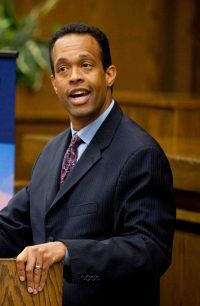W. C. Fields once said, “If at first you don’t succeed, try, try again; then quit – there’s no use being a damn fool about it.” Unfortunately, such words of wisdom continue to be ignored by a group in Vermont, who recently lost yet another challenge to the state’s gay marriage law.
In 2000, Vermont became the first and only state to pass a law granting gay couples the right to form civil unions similar to marriage. Since then, the law has been repeatedly challenged in court, much like my competency to practice law.
In the most recent case, opponents of the law brought two challenges. The first challenge was that the law should be struck down because it was tainted with legislative corruption. Apparently, 14 members of Vermont House did the unthinkable — they placed $1 wagers on whether the bill would pass. Gasp!
According to opponents of the gay marriage law, this breach of ethics should invalidate the passage of this law. However, the Supreme Court of Vermont wisely disagreed.
The court ruled unanimously that it did not have jurisdiction to challenge the House’s rules on this matter. Apparently, Vermont House rules require a $5 minimum wager before disciplinary action can be taken. Nevertheless, House members are allowed to double down when the dealer has a face card showing.
Yes, I am kidding. Everyone knows that you don’t double down when the dealer has a face card showing.
In fairness to the high rollers in the Vermont House, the wager was only $1. Where was the harm? After all, it’s hard to believe that even a politician would sell his integrity for $1. Besides, that would require the buyer to make change.
And what can you buy for a dollar anyway? While it’s certainly true that the cost of living in Vermont is lower than in other places like New York, Los Angeles or Somalia, a total of $14 in wagers should not bring democracy to a halt. In this case, the high court was wise to use restraint. At least until House members start splitting $10s.
The second challenge brought against civil unions was a constitutional claim. Town clerks argued that requiring them to issue civil union licenses would force them to violate their religious beliefs. Not surprisingly, the court refused this claim as well.
For one, the Vermont legislature foresaw this challenge (presumably between poker hands) and provided that no town clerk would be required to issue civil union licenses. Instead, clerks were given authority to appoint assistants to perform the task for them.
Moreover, freedom of religion rarely gives you the right to abstain from performing tasks mandated by law. If this were the case, then the most popular church in America would be the Church of Latter Day Tax Evaders.
Nevertheless, unfortunately for the proponents of gay marriage, the legal battles will continue both in Vermont and elsewhere. Since passage of the Vermont law, many state legislatures have passed laws affecting reciprocity.
As a general rule, each state’s marriage laws provide for reciprocity with the marriage laws of other states. In short, a validly married couple under the laws of the state in which they were married will be treated as validly married if they relocate to another state. However, this general principle of reciprocity is being steadily overturned with respect to civil unions.
Even more, some states have taken it a step further. For instance, last year in California, the citizens passed a referendum entitled “The Protection of Marriage Initiative.”
In this initiative, voters reaffirmed that gay marriage was illegal in California despite the lack of challenges to the contrary. According to the supporters of this referendum, reaffirming the definition of marriage as between a man and a woman would strengthen marriage in general. In fact, one web site went so far as to promise that this referendum would reduce divorces and out-of-wedlock pregnancies.
As a California resident, husband and father, I was pleased to know that I could solidify my marriage by simply voting “Yes” on a referendum. This was certainly much easier than actually communicating or showing love, appreciation and support for — whatshername.
In truth, I am continually amazed by the arrogance of heterosexuals on this issue. Let’s face it, we have had marriage all to ourselves for thousands of years and we have made a mess of it. According to some statistics, half of all marriages fail and the other half end in divorce before they’ve had a chance to fail.
This being the case, I think it’s time that we allow gay couples to share some of our “wedded bliss.” In time, they too will discover that the old saying is really true: “The trouble with wedlock is that there’s not enough wed and too much lock.”

Harvard Law School graduate Sean Carter practiced corporate law for 10 years before pursuing a career as a humorist and publishing the book If It Does Not Fit, Must You Acquit? Your Humorous Guide to the Law.
